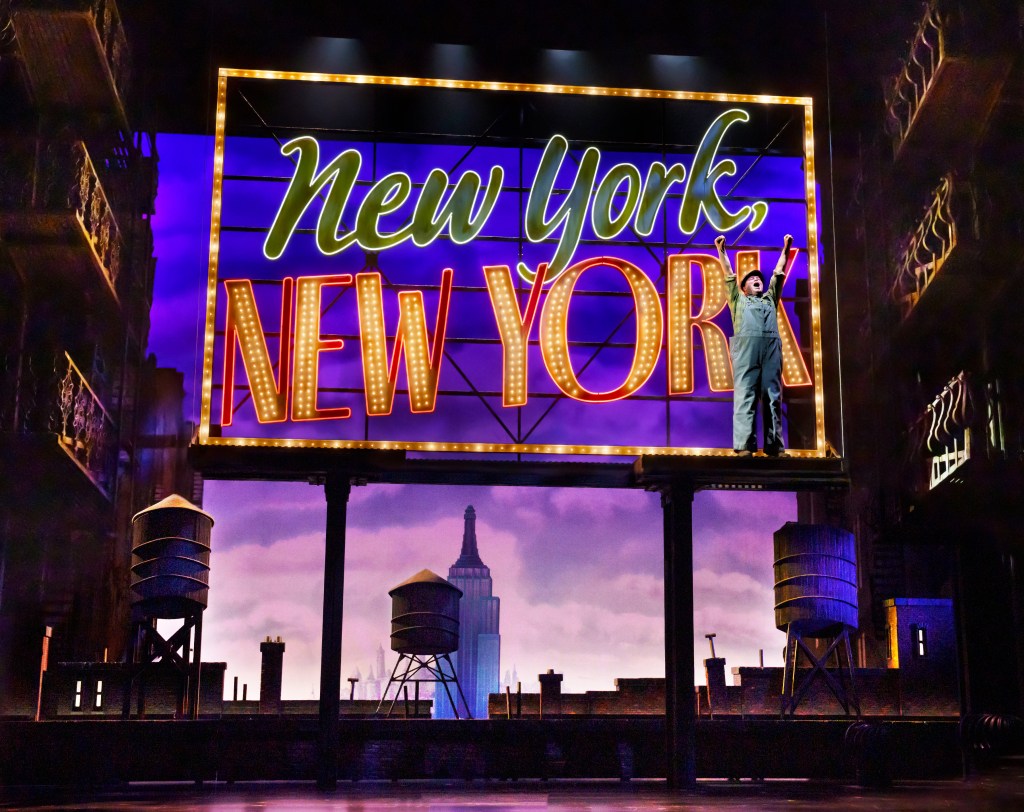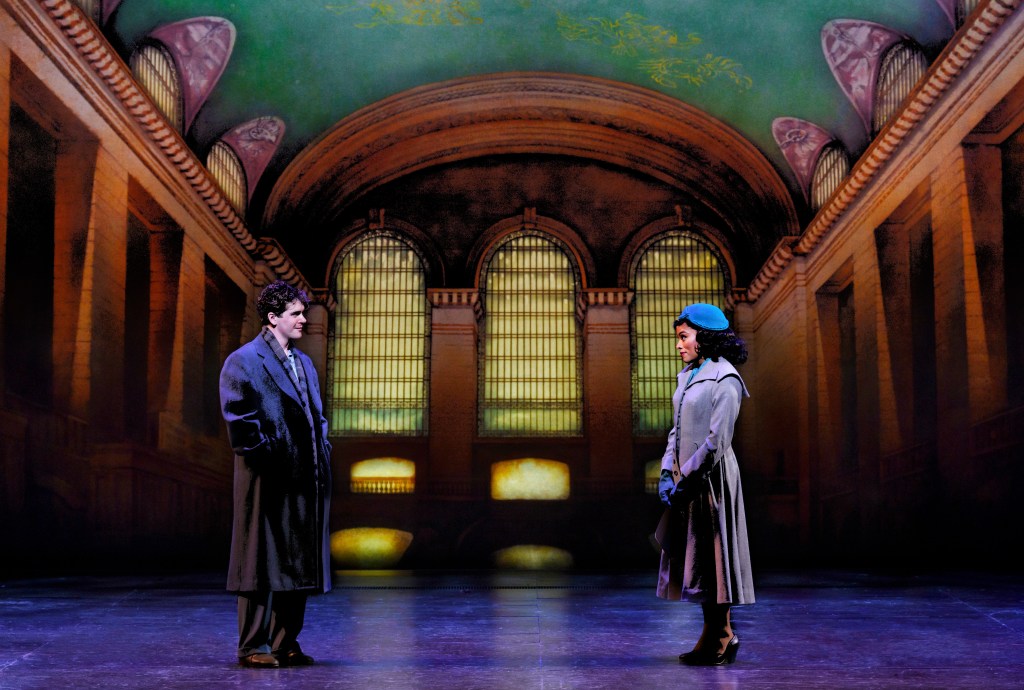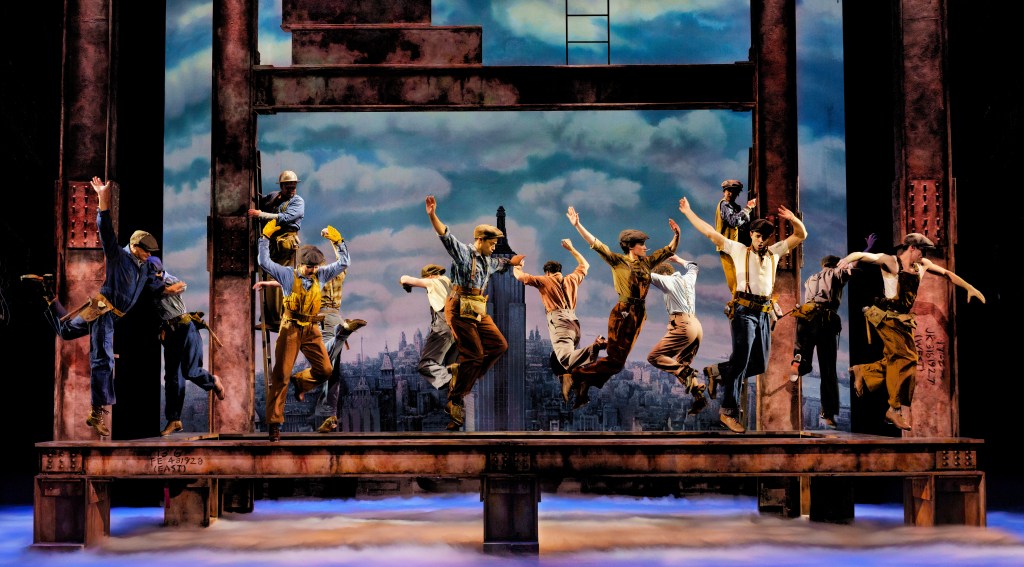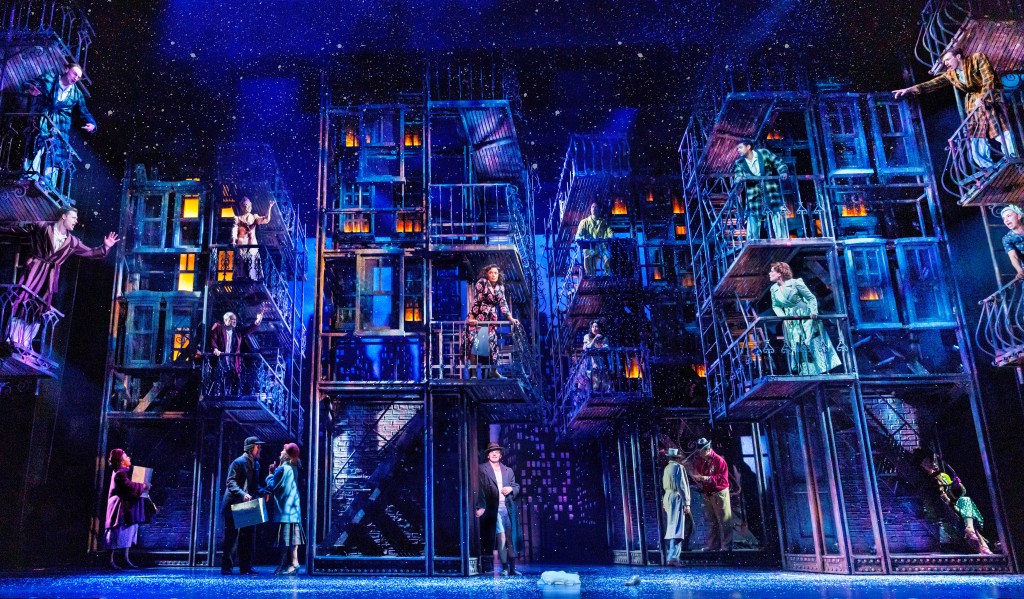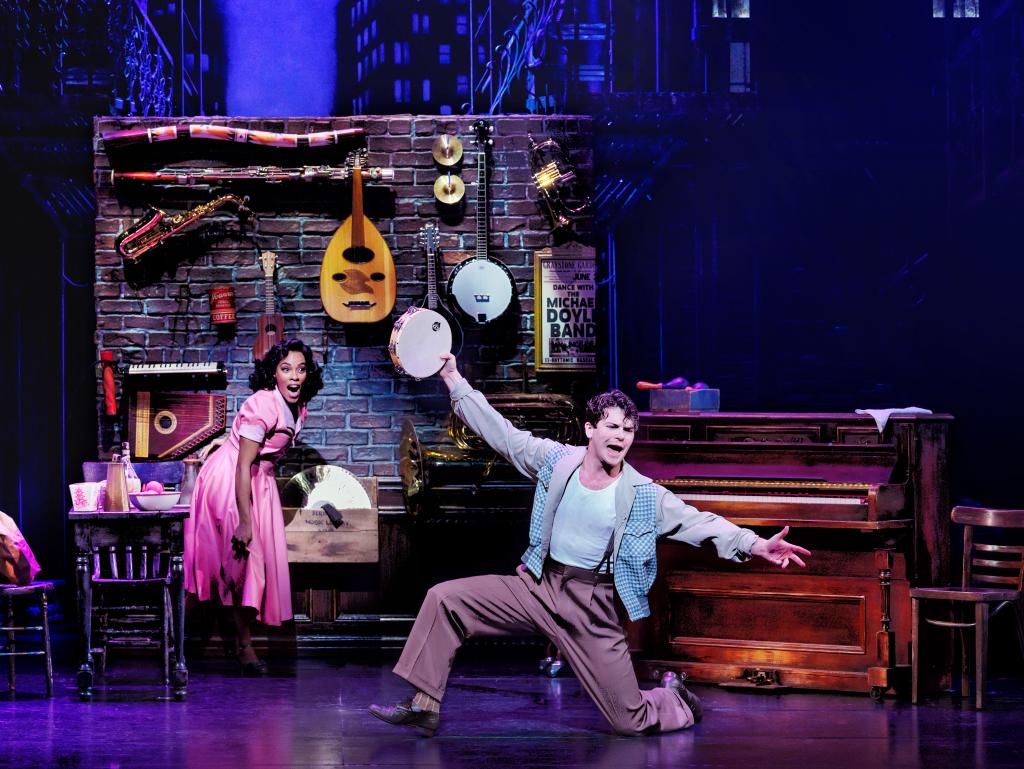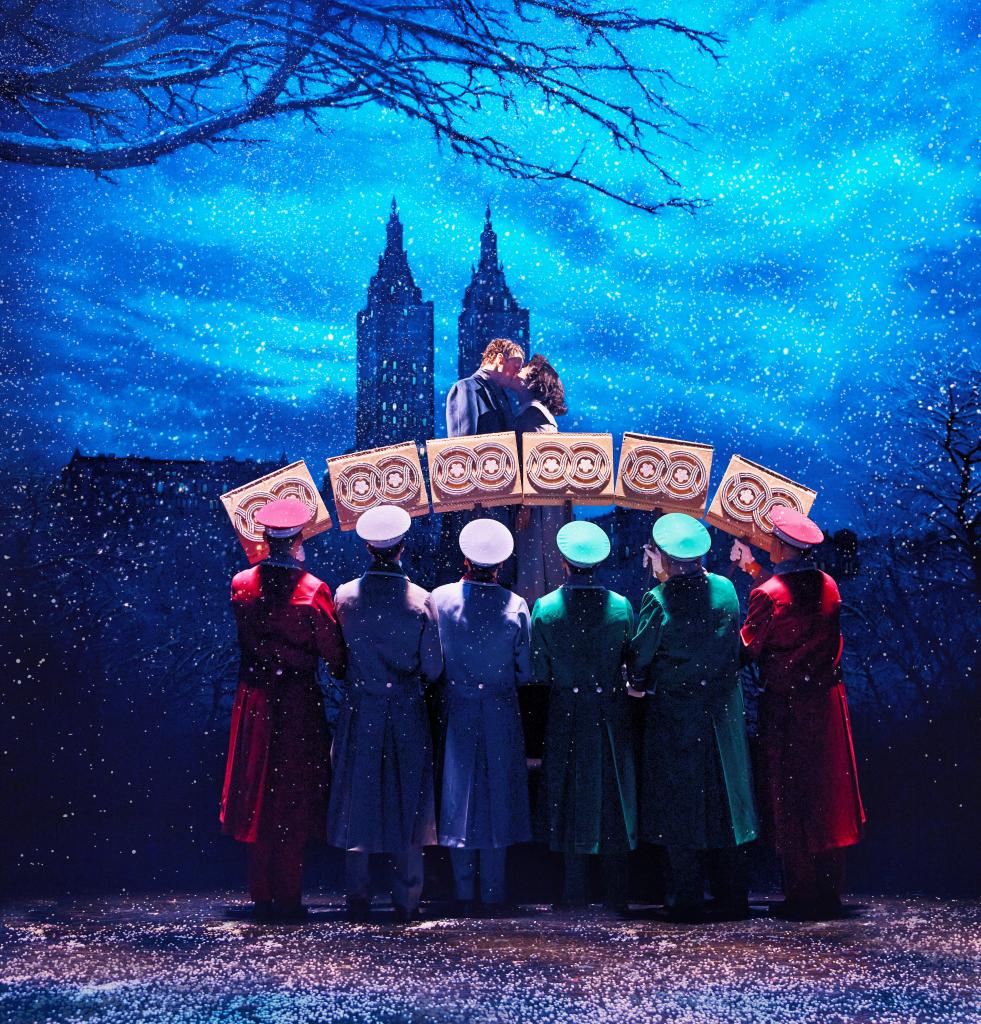‘New York, New York’ review: Broadway musical can’t make it here, anywhere
NEW YORK, NEW YORK
2 hours and 45 minutes with one intermission. At the St. James Theatre, 246 W. 44th St.
Watching the new Broadway musical “New York, New York,” which opened Wednesday night at the St. James Theatre, is akin to being stuck on the tarmac at LaGuardia.
You can spot the city’s stunning skyline taunting you from across the river — “I want to be a part of it!” you think — but then nothing happens for hours on end, as you’re silently trapped there in your uncomfortable and expensive seat.
And just like the elation and relief of finally deplaning, the best part of the show comes at the very end when the cast finally sings “Theme From New York, New York.”
We clap for our local anthem and get to go home.
Start spreading the news — I’m leaving today!
“New York, New York” is a show that honestly hurts to dislike.
The musical features songs, old and new, from the brilliant team of John Kander and the late Fred Ebb, with new material by Lin-Manuel Miranda.
And it’s directed and choreographed by Susan Stroman.
These artists’ respective “Chicago,” “Hamilton” and “The Producers” have given a lot to the city that their latest, lesser creation is named after.
But none of the ingenuity, originality and edge that made those musicals era-defining hits comes through in “New York, New York.”
Instead, there is start-to-finish derivativeness in the guise of good old-fashioned nostalgia. It’s tired, sappy and deathly dull.
For instance, Stroman’s constant city snapshot dances through Grand Central, Times Square and Central Park are a watered-down “Runyonland” from “Guys and Dolls,” when what we crave is her unique and energized take on the five boroughs.
Her construction worker tap dance on aerial beams is impressive if not a showstopper.
But most of the vignettes are hokey, like being on “The Ride” bus that’s so popular with tourists.
At one point, three poor actors walk onstage dressed as statues, freeze for a few seconds and then walk off as if it was all a dream after too much spicy food.
Stroman’s many, many dances and mini-scenes punctuate what is a reworking of Martin Scorsese’s flawed 1977 movie “New York, New York.”
The film is a dark “A Star Is Born” riff. The musical switches gears onstage to make the city the main character.
That was their first mistake.
More effort has gone into the urban atmosphere than the people — the overabundant characters are as deep as a puddle on Eighth Avenue — and the plot in Sharon Washington’s book, all of which is thin or laughable.
The central lovers who were played by Robert De Niro and Liza Minnelli in the film — firebrand jazz musician Jimmy Doyle and singer Francine Evans — are retained and taken on by Colton Ryan and Anna Uzele.
They meet and fall in love at the end of World War II and begin as watered down a Broadway romance as you could possibly imagine.
Jimmy’s drinking problem is tame, the pair’s fights are anodyne and Francine’s rise to stardom barely happens. When a cartoonish British theater producer develops a crush on her in Act 2, the audience couldn’t care less.
That Francine and Jimmy are different races is lightly touched on and then casually brushed aside.
Several other New Yorkers who are even less fleshed out are tossed in like beansprouts in an undressed salad.
A Cuban musician named Mateo Diaz (Angel Sigala), who’s secretly gay and lives with his mom and abusive baseball player dad, wants to forge his own path.
And Alex Mann (Oliver Prose), a recent Polish immigrant and violinist, seeks out Carnegie Hall legend Madame Veltri (Emily Skinner) to help him get into Juilliard.
Alex is handed cringeworthy lines such as, “This word, I do not know. Sarcastic?”
And Mateo’s nonsensical resolution is a dog-ate-my-homework excuse to get to the finish line.
What unifies everybody, though, is that the only things that appear onstage more than fire escapes are ethnic stereotypes.
The action, such as it is, is scored by a mashup of the fabulous Kander and Ebb songs from the film, like “But the World Goes ‘Round” and “Happy Endings,” alongside other numbers from their less-popular (or unproduced) shows such as “Flora the Red Menace,” “The Rink” and “Golden Gate.”
In the mix are a few entirely new tunes by Kander and Miranda.
Uzele sounds lovely during “But the World Goes ‘Round” but doesn’t quite nail the title song at the end. Much of the excitement of that moment comes from a scenic surprise (Beowulf Boritt’s metallic set looks best when lit by Ken Billington’s pinks and oranges). Her Francine has an air of indifference throughout.
One song addition, “Music, Money, Love,” explains what Jimmy calls a “major chord” for a happy life.
I call it a less catchy “Gimme Love” from “Kiss of the Spider Woman.”
Ryan, whose voice I adored in “Girl From the North Country,” goes back and forth between smooth and confoundingly strange.
An enraging choice: Whenever the actors play instruments onstage, which is often, they are miming them while someone in the pit orchestra makes the real sound. In this age of frequent actor-musician shows, it’s inexcusable.
However, these failures are the not the fault of the actors. They simply haven’t got much to work with.
As the cast sings “New York, New York” at the finale, it recalls how the Yankees blare the song at the end of every game at Yankee Stadium — win or lose.
The final musical of the Broadway season, I’m sorry to say, is not a victory for the home team.


